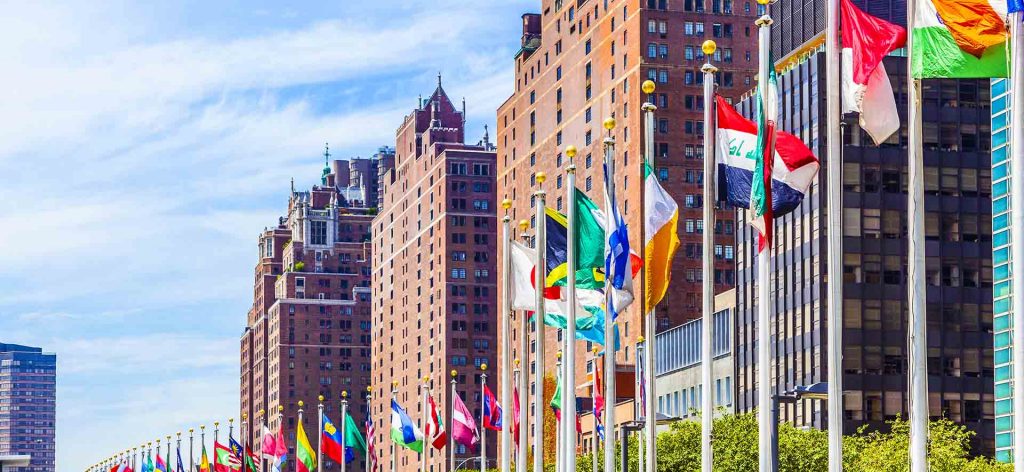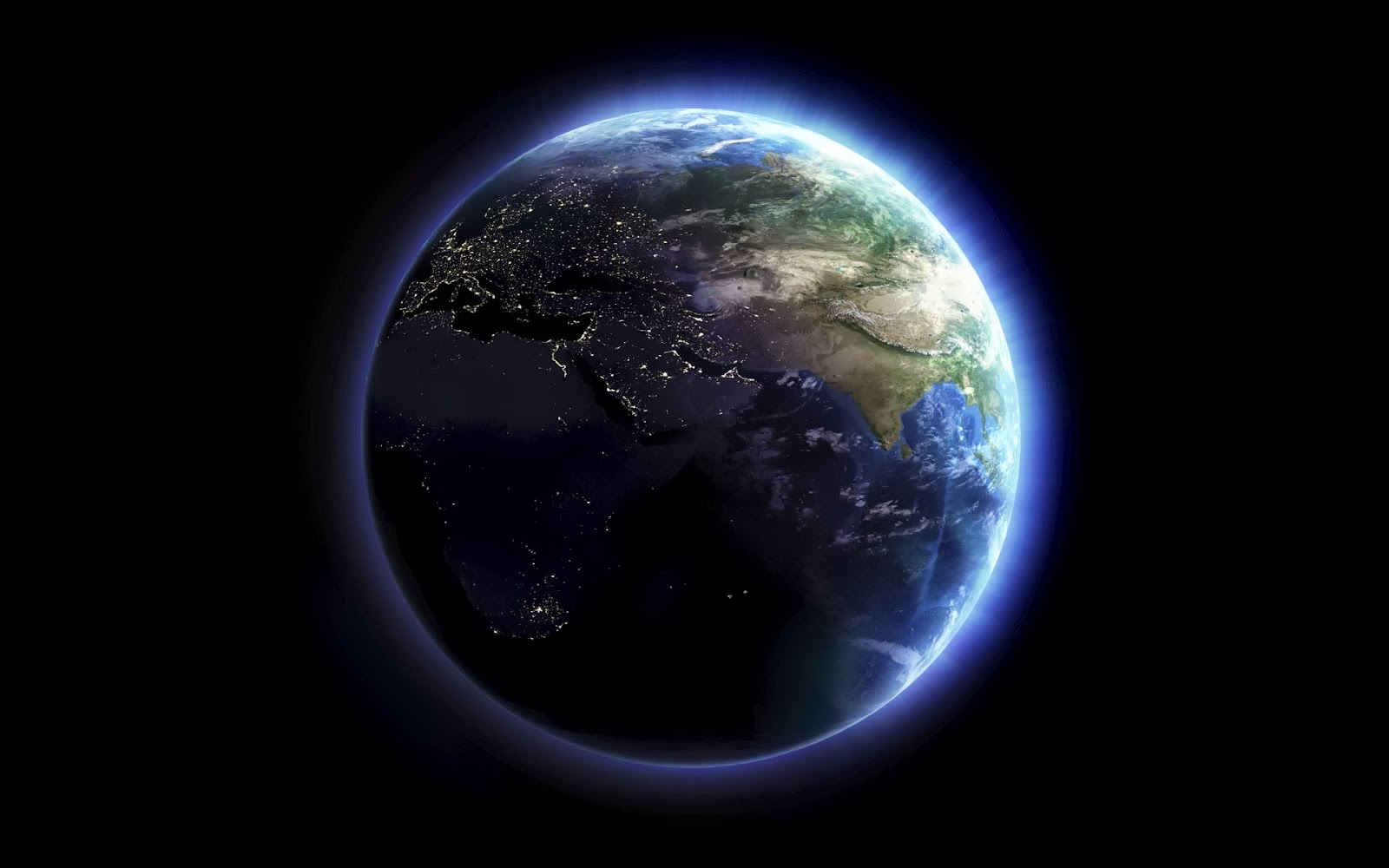The Alchemy of Power
An Emergent Paradigm
 There is a growing backlash to yang-dominant norms that have resulted in imbalances of power and inequities in the distribution of resources. It appears that a yin-ward worldwide wave is emerging as more and more groups are cohering around values like happiness and well-being, and as more and more businesses adopt a quintuple bottom line that includes people, prosperity, planet, partnership, and peace. Many people believe that the emergent wave is nothing less than an international ontological leap toward a new paradigm, meaning a new basic model, a new set of fundamental assumptions about the way the world is. Our paradigm is our shared reality. A paradigmatic change is a fundamental ground shift, an ontological transfiguration, of our basic assumptions about personal, financial and social power. A paradigm shift means that the basic meaning of leadership power is morphing dramatically.
There is a growing backlash to yang-dominant norms that have resulted in imbalances of power and inequities in the distribution of resources. It appears that a yin-ward worldwide wave is emerging as more and more groups are cohering around values like happiness and well-being, and as more and more businesses adopt a quintuple bottom line that includes people, prosperity, planet, partnership, and peace. Many people believe that the emergent wave is nothing less than an international ontological leap toward a new paradigm, meaning a new basic model, a new set of fundamental assumptions about the way the world is. Our paradigm is our shared reality. A paradigmatic change is a fundamental ground shift, an ontological transfiguration, of our basic assumptions about personal, financial and social power. A paradigm shift means that the basic meaning of leadership power is morphing dramatically.
The demographic of new paradigm early-adapters comprises a mix that crosses almost all sectors, including race, gender, age, occupation, ethnicity, education, geography, and class. Its constituents are at every level of rank in organizations and they represent a critical mass of all organizational stakeholders. They share a resonance with what their hearts and souls are telling them about their work and about the world. Hate mongering and reactions to it are dominating the airwaves while there is a distinct lack of representation of the ever-widening circles of people who are establishing new levels of accountability for the value of values. Although they are still a somewhat incoherent demographic, which is partly why they are under-represented by media, new paradigm early adapters are a force to contend with. Whether you identify with that demographic, find yourself deeply suspicious of it, or choose to ignore it completely, as a leader you are necessarily contending with the reality of its depth and breadth, consciously or not.
Small and large businesses, schools, governmental, nongovernmental, and civic organizations are demonstrating what decades of studies bear out: operationalizing values is the best insurance for living and working with robust people, within robust economies, on a robust planet. We know that there is enough for everyone on the planet to be well and happy, but the problem is that our systems are geared toward other priorities. In other words, we have enough to cover everyone’s needs but not to cover everyone’s greed. The term “new paradigm’ designates an emergent global ethic for creating workplace and civic cultures that are organized around personal, organizational, and social greatest good. You could argue that exactly the opposite is happening and site the news as evidence. Big front, big back….
Changing Times
Not one of today’s pressing work and/or world problems is a result of too much kindness and caring, nor of too much accommodation of differences. Yet, despite a plethora of evidence to the contrary, the leadership genre has been saturated with yang messages that people, especially women, value those kinds of yin things too much and that there is no place for such fluff at work.
But an undeniable international call is arising for re-valuating what we value and how we value it. It is coming from a highly diverse and growing demographic that is increasingly adamant about creating cultural norms for better work in a better world. That emergent demographic, first identified in a longitudinal study on Cultural Creatives (see Anderson and Ray), is a cross-sector of men and women who recognize that there are pervasive problems in the systems of business-as-usual.
As the world comes to terms with the problem that current ontological assumptions about economics are not a plan for human survival, pioneers like Oprah Winfrey, Tony Hsieh, and thousands of civic leaders, executives, business owners, managers, farmers, artists, spiritual leaders, and concerned citizens are forging more life-affirming ways of defining success while they soar through financial ceilings. There is a global trend toward values-centered economics, policies, and practices that is reflected in part by the increasing market share for personal well-being products and services, for all things ecofriendly, for fair and transparent systems, and for ecologically and socially responsible companies.
Across the planet, there is growing alignment around the call for systemic, values-driven transformation and that collective urge is already big enough to impact everyone’s work everywhere. It is a worldwide wave that is gathering momentum as it heads toward a new shore, a new normal, a new paradigm, where our common aspirations for dignity and vitality take their rightful places in our economic and social systems.
There is growing recognition that conventional metrics, like gross national product (GNP), stock prices, and standard spreadsheets, only measure an extremely narrow spectrum of what people value. Despite that limitation, economic indicators are often assumed to be social indicators and that leads us to conflate indicators like a high GNP with the notion that all things are good. Increasing numbers of people are concluding that common economic standards are unacceptable because they lack valuation for the things people value most….
…
Dawn of a New Fire
Mystics and philosophers have forever grappled with the spark of life that generates intentions and makes them real. The only thing we know for sure about the spark that animates us is that words can never describe it. The most cross-culturally consistent word seems to be “love.” A Course in Miracles says there are only two emotions: love and fear. That pretty much captures the metaphysical difference between old and new paradigms. You could say that the old one is fear-based and the new one is love-based. Not romantic love. Not on-again, off-again gushy stuff—but the most powerful driving force in the universe because it has the capacity to transform what it touches. When people love their work, they deliver!
Metaphysical influences have always been, and will always be, pervasive and operative in the human experience. New paradigm thinking is both a renewal of our availability to metaphysical realities, as well as higher prioritization of our facility with them. With so many leaders already making the transition to values-driven leadership, we are seeing the dawn of the new fire that de Chardin wrote about—a common-good-centered fire, one that cannot be fueled by fear or through the pain of others, but rather by humanity’s greatest force: love. Old paradigm leaders have spent billions of dollars, and far too many lives, to intervene between populations and their direct connection to that inner fire because it can be so threatening to the status quo. But alchemical leaders catalyze those sparks of causality and then fan the flames.

As “softer,” more yin indicators and practices are becoming more and more operative in our workplaces and our world, we’re seeing higher prioritization of, and greater valuation for, well-being, dignity, compassion, harmony, and justice for all global citizens. A new fire is dawning with an emerging clarity that we are the hearts, we are the hands, we are the feet, we are the voices, we are the minds, and we are the souls who can and must co-create our peaceful co-arising with one another and with the planet.
…
Universal Transformation
Alchemical leaders realize that people at the top of the responsibility chain play especially critical roles in creating the work we want to do and the world we all want to live in. The vast concept of a global paradigm shift is a way of:
- conceptualizing the larger context in which your organization is situated
- contextualizing your leadership role in transformational times
- revealing the roles of those with strong propensity for ushering it in
Thanks to the great minds and hearts that contributed to the amazing world we’ve got, there are solid historical yin and yang pillars to build on as we formulate new paradigmatic understanding of what power is and what we want to do with it. After living in a yang-dominant ontology for millennia, we are witnessing the dawning of a new ontology that holds universal well-being as an anchoring principle. The conscientization process is a way to think about how to utilize the momentum of this evolutionary moment to catapult your organization to new heights.
Whatever it ends up being named by history, leaders and business schools risk irrelevance if they choose to ignore the leap of economic and social consciousness that is represented by the concept of a new paradigm. There are many choices yet to be made between where we are and where a new paradigmatic reality might take us. But wherever we end up, it is clear that it no longer works to equate power with control or success with just financial growth. Workplace parameters are evolving, and leaders must evolve themselves and their cultures to keep up.
A paradigmatic resetting of cultural coordinates demands a resetting of every leader’s personal, professional, internal, and external compass points such that the role of mojo is no longer considered extraneous but is squarely located at the center of decision-making. However, alchemical leaders go beyond developing personal and collective mojo alignment. They take a global citizen approach by aligning their organizations with universal ethics and values, which, in turn, sends signals to workers that automatically raise individual and collective mojo because that’s what happens when people feel part of something that is bigger than themselves.
Reinventing Success
 We are living through a reestablishment of just what the equanimity needs to be between yin factors like intentionality, civility, relationship, inner strength, and wisdom; and yang factors like financial data, methodology, physical strength, and rationalism. Paradigmatic shifting is not about valuing the yin more than the yang, it is about creating a dialectic ontology based on both/and, rather than either/or, consciousness. A dialectic ontology frames power as yang best practices, expertise, and competence being in dynamic equanimity with yin morals, shared vision, and aligned consciousness.
We are living through a reestablishment of just what the equanimity needs to be between yin factors like intentionality, civility, relationship, inner strength, and wisdom; and yang factors like financial data, methodology, physical strength, and rationalism. Paradigmatic shifting is not about valuing the yin more than the yang, it is about creating a dialectic ontology based on both/and, rather than either/or, consciousness. A dialectic ontology frames power as yang best practices, expertise, and competence being in dynamic equanimity with yin morals, shared vision, and aligned consciousness.
Since we have had yang-dominant norms for so long, the emergent paradigmatic correction needs to be yin-ward leaning. The world is demanding that the yin voice be brought into full-fledged harmony—not muted, not retuned, and no longer kept at a hum. As the paradigmatic pendulum swings away from the yang-ward spiral we have been in, the emerging yin-ward cultural swing is toward the whispers of wisdom’s voice. The acknowledgment of metaphysical influences along with heightened consciousness of our interdependence with one another constitute a cultural epiphany. And now that a critical mass of people is experiencing that epiphany, there is no going back. Leaders must abide or step aside.
In such a rapidly changing world, it is becoming clearer than ever that the dynamics of success are far more fluid and far less tangible than we have been believing. Metaphysics, which is the study of the fundamental nature of things, is the domain for addressing the dire need to reinvent success in accordance with our universally desired common ground of interconnectivity, happiness, and well-being. We are each a factor in the evolution of billions of factors that make up life on Planet . Earth. Our consciousness is a mega-factor, all the more so when it is aligned with others. The shift away from values-suppressive norms and toward a world that works for everybody reflects, above all else, a global shift in consciousness.
Going Forward toward the World We Want
As we enjoy unprecedented communications connectivity, we are waking up to newfound capacity for evolutionary leaping toward living out our highest ideals. The United Nations’ 2012 vote to start convening toward a new paradigm based on happiness and well-being, and the world’s agreement on the seventeen Sustainable Development Goals, reflects a growing number of people whose consciousness is aligning toward new ways of operating.
Though the mystery of our cosmic unfolding can never fully be known, we do know that time is a continuum of changes. The capacity to demonstrate causality in the matter of change is alchemical power. Alchemical leaders are adept with causing what is happening under their watch by way of consciously working with the metaphysical forces that flow through and around each one of us. Alchemical leaders catalyze the sparks of new, bold, bodacious visions of a workplace and a world that works for all global citizens.







I totally agree with the need for a far more conscious and empowered yin presence in every area of our lives and larger society. In working with women, I have found that the seeds of the patriarchy (a weary, outdated version of yang energy) tend to rise into expression as women seek to assert themselves. The deeper, more honest and subtle work of embodying and expressing yin energy may come a little easier for women than for men, however, I am aware that there is a lot of inner (and outer) work still needed to be done for women to truly embrace and stand in the fullness of their yin energy. And part of this work involves owning and facing the dark shadows of the internalized patriarchy. Not a pleasant journey, but an essential one for there to be any real transformation in our culture. Thank you for your writing and your clear focus on the shift from yang to yin!